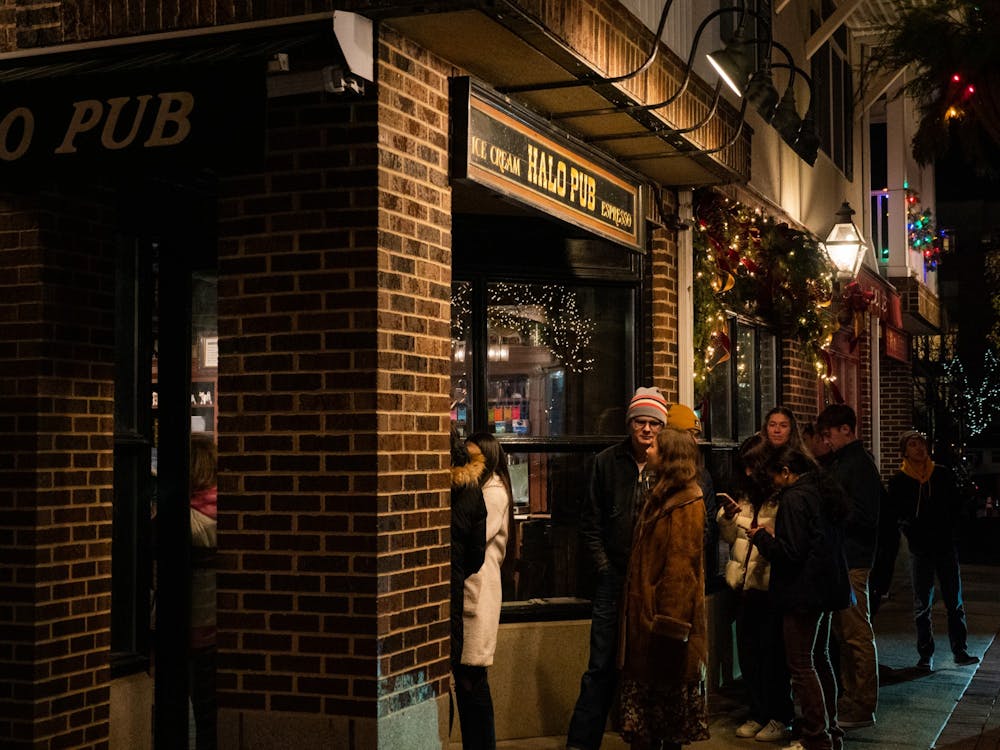Attempts to enjoy your quotidian life in Princeton, New Jersey, can be expensive. For example, coffee is not cheap in Princeton — the average latte is $5. To offer all students the equal opportunity in relishing in the delights the town has to offer, the Undergraduate Student Government (USG) began the Pay with Points program, providing stipends for those on unlimited meal plans to spend at local businesses. Yet there’s another use of Pay with Points that attacks the very purpose of this program: points can be used to cover sophomore eating club dues. The Pay with Points program should not be treated as a rebate from the unlimited meal plan: if that were the case, the University could simply reduce the meal plan by $150. Rather, this is a program with a specific purpose — to increase town engagement — and it should not be exploited to cover insufficient eating club financial aid.
The Pay with Points program was initiated in fall 2022 after “years of advocacy,” according to the USG 2022 Annual Report. This report states that the purpose of the initiative was to “giv[e] students on the unlimited meal plan $150 worth of dining points per semester to spend on food and non-alcoholic drinks at select in-town and on campus vendors.” There is no mention of any other purpose for this funding.
Further reporting on the initiative clarified that the purpose of the program was twofold. First, it would allow more students, particularly those on financial aid, to engage with the town of Princeton and avoid exclusion from social events based on financial status. A USG email announcing the program last fall noted that it would give students the opportunity to “connect with each other and the town of Princeton without having to worry about paying out of pocket.” Secondly, the program is intended to encourage the support of local businesses. USG president Stephen Daniels ’24, who was the chair of the Community Dining Task Force in 2022 and thus oversaw the implementation of the program, hoped that the program would benefit the local community as well, saying “It’s going to be a big thing for a local economy.”
Yet the other use of these points is seldom discussed, and even less defended. According to the Interclub Council (ICC), sophomores can use their Pay with Points to “go toward [their] sophomore dues.” This usage does not come up at all in the USG annual report. There are no USG members quoted in the ‘Prince’ who celebrate this allocation. On the surface, this seems like good support for students with financial difficulties. It’s just free money!
But Pay with Points is not simply an extra grant added to the financial aid program. There is a specific purpose: to alleviate the burden students on financial aid face when they or their friends want to engage with the town of Princeton, and to support the town itself. The eating clubs are not part of the town community; they do not need monetary support from the University. Further, reducing the $150 burden of eating club dues does not mean students suddenly have $150 available to spend in town. It reduces an already burdensome fee, which at its lowest is $700 for sophomore dues.
There should be more financial support for eating club members on financial aid. According to the ICC, two clubs (Tiger Inn and Ivy) expressly say that their financial aid policies only support upperclass students, and only 2 clubs (Cap & Gown and Quad) specifically state that they offer sophomore financial aid. There are several obvious issues with eating club financial aid: upperclass students not on full aid are not always guaranteed support, and sophomores are rarely afforded assistance, regardless of their aid level. Either the University or the eating clubs themselves should create more grant opportunities to fill in these gaps. But they should not come at the expense of other programs supporting students in different ways.
The potential uses of this grant force students under financial constraints to make a choice about their social life: either participate in an eating club or engage in the town culture. You can either be a member of Cloister Inn or go out to dinner with your friends, but not both. This goes directly against the purpose of Pay with Points, which was to erase this dilemma from the financial calculus many students undertake when deciding how to make Princeton affordable.
Financial aid resources should not force students to choose which aspects of the Princeton community they are able to participate in, especially when the programs are directed to specific ends. The Pay with Points program was not brought about in order to allow students facing financial difficulties to have more access to social life — all those involved clearly created the initiative in order to increase town engagement. This end should not be abridged because there are other burdensome financial barriers to full participation in common Princetonian activities — those barriers should instead be similarly lowered.

Abigail Rabieh is a history major and sophomore from Cambridge, MA. She is the head Opinion editor at the ‘Prince’ and can be reached by email at arabieh@princeton.edu or on Twitter at @AbigailRabieh.









